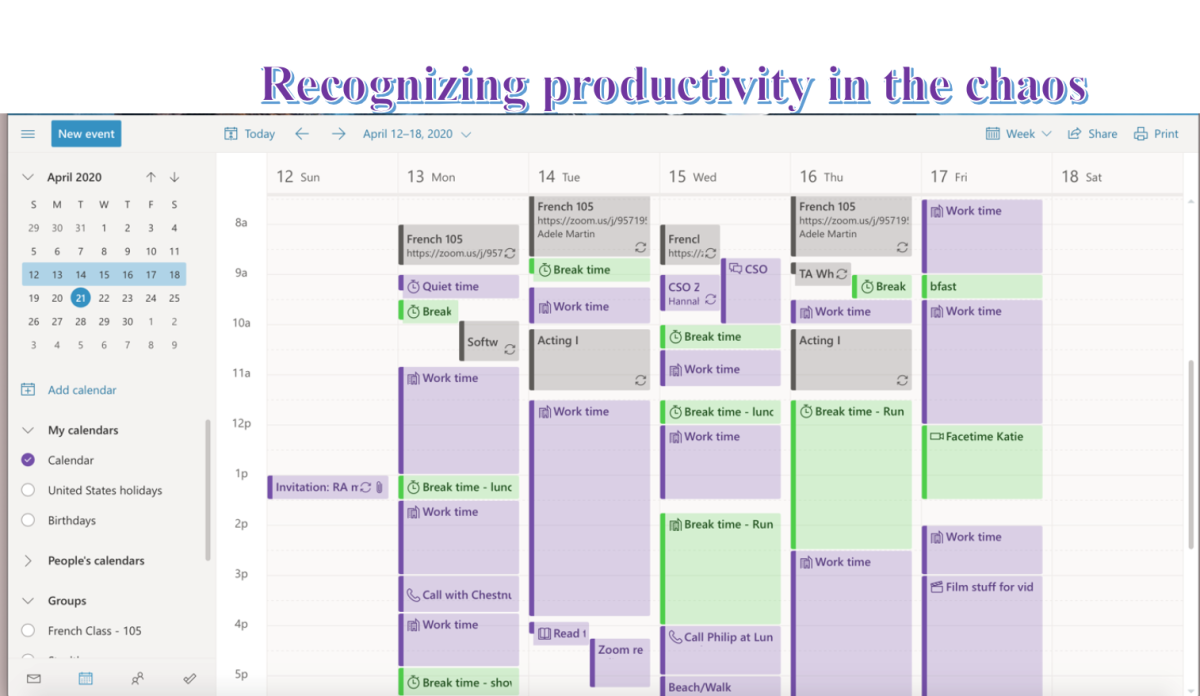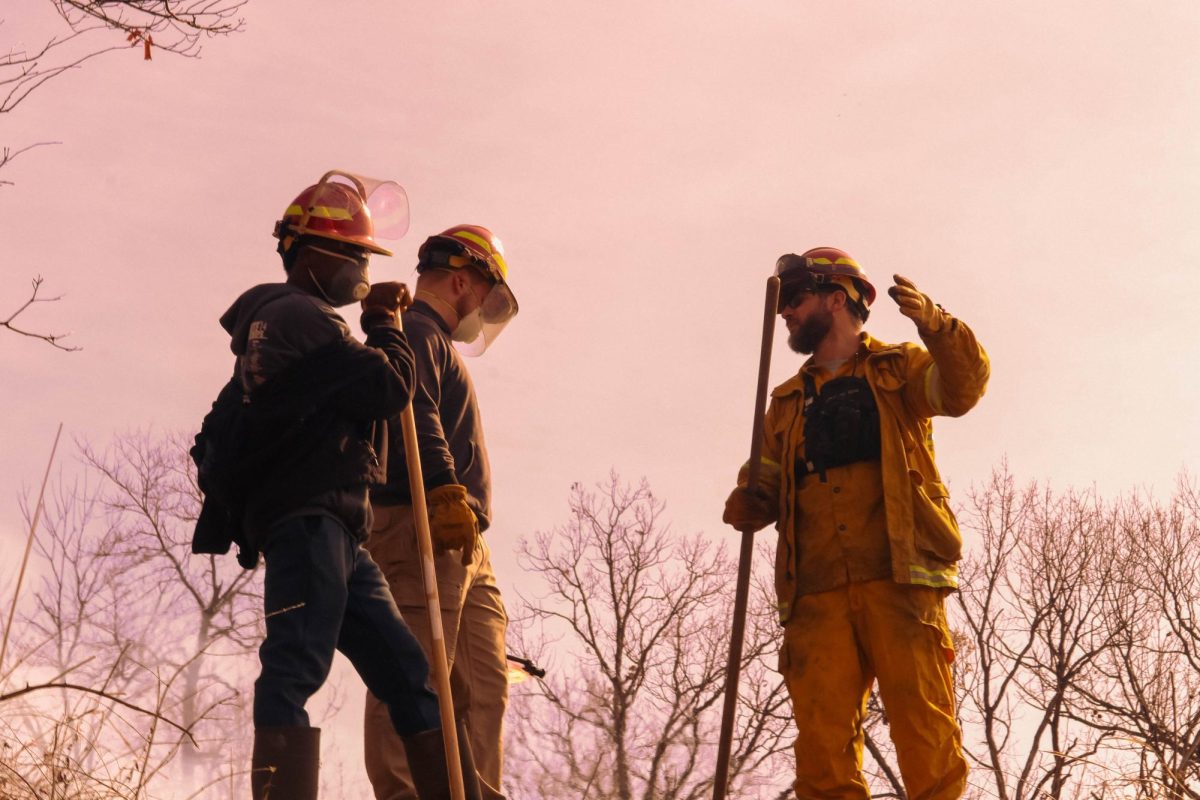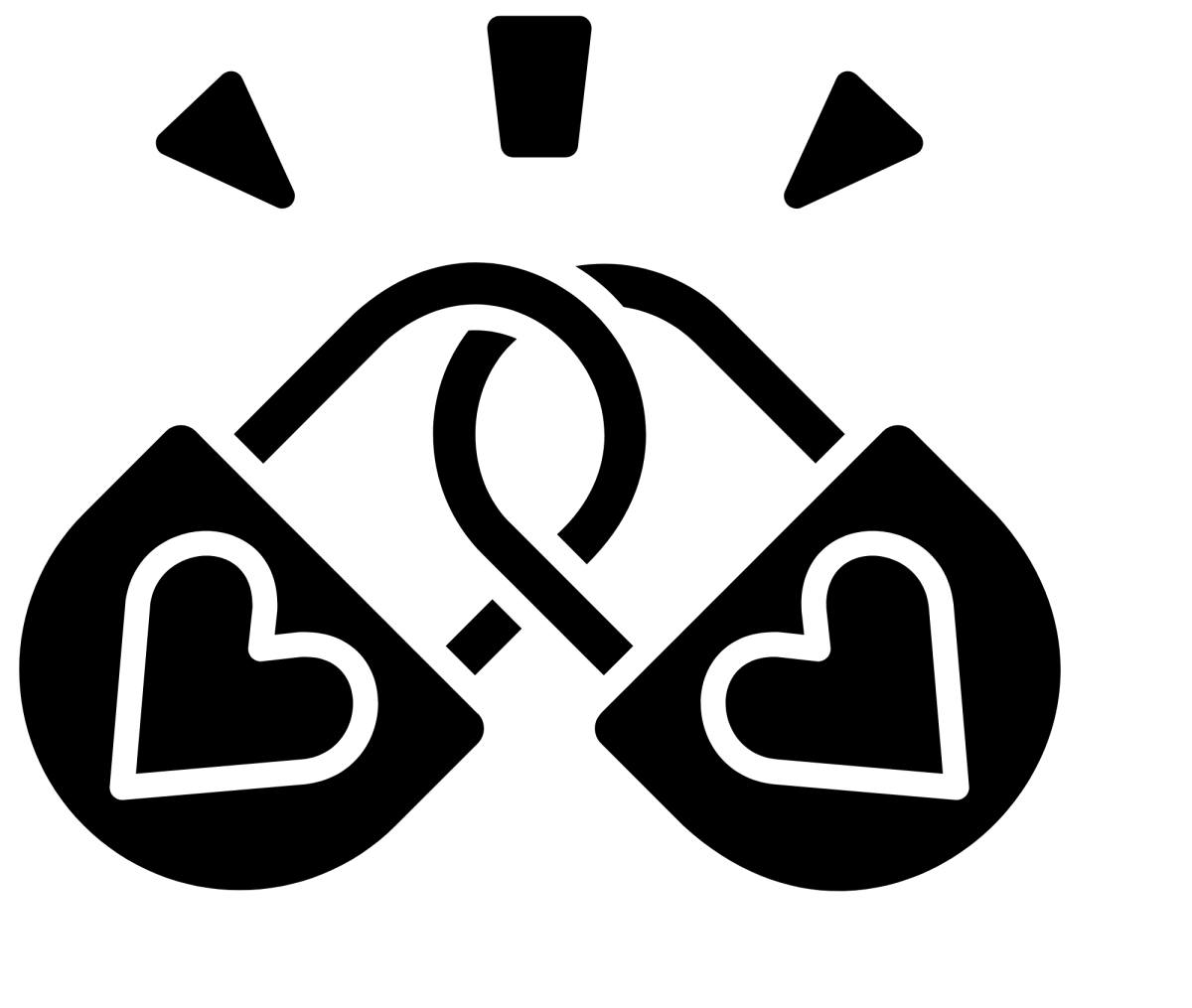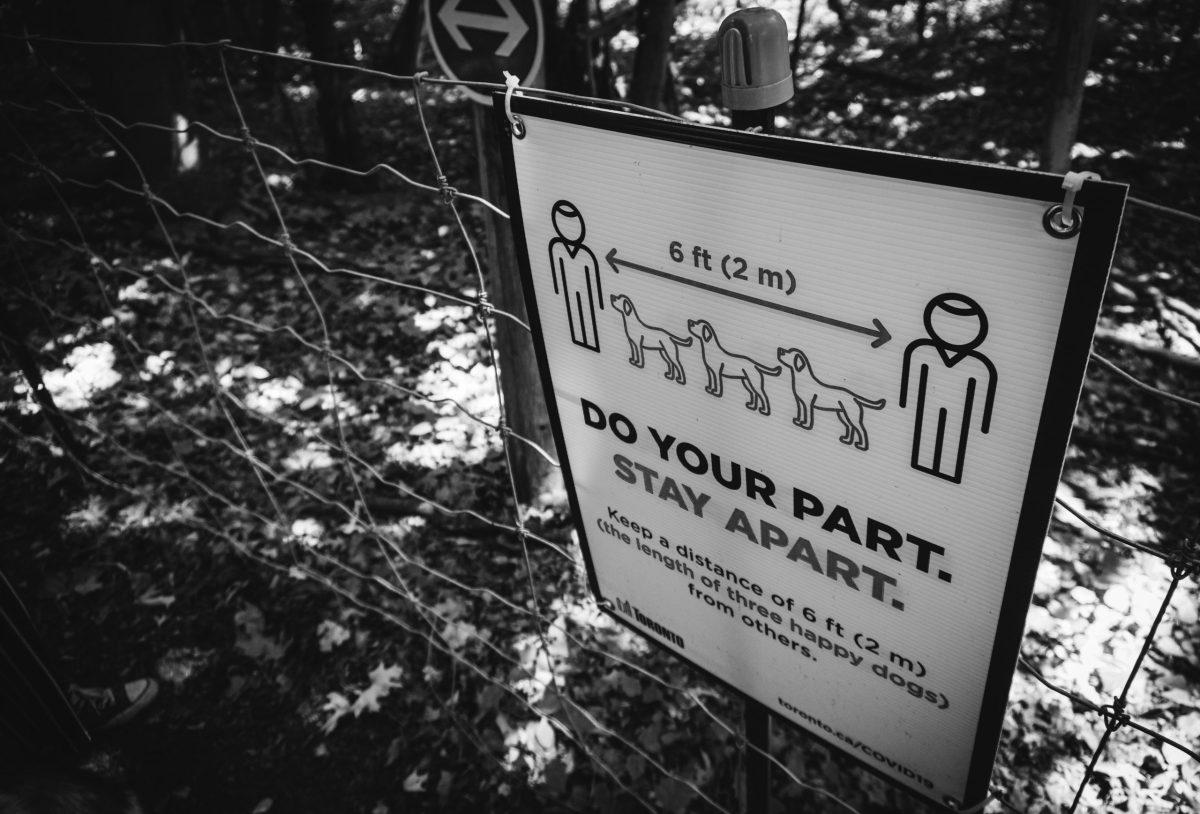By Tara Adhikari
Without the solace of pin-drop silence in the library or the ambient hum of typing, blenders, and conversation in the Pub, Principia students, under stay-at-home orders, are finding it difficult to recreate the physical and mental spaces they were accustomed to while on the College campus.
Likewise, Principia faculty members are adjusting to at-home classrooms and office spaces, where kids peek in asking for a snack and household chores are as in-your-face as the stack of papers to grade.
Disruption of routine has allowed members of the Principia community to reflect on how self-fulfillment and focus blend together on any given day. Experts tell the Pilot that growth in productive habits in this remote era could provide advantages.
“One of the challenges that I run into here is that changing my environment, which is something that normally helps me focus, has become much more difficult to do,” says Jake Smith, a sophomore, from his home in the foothills of Golden, Colorado.
Connor D’Amico, a senior from Norwalk, Connecticut explains that the distinction between class time and homework time is blurred because much of his time is spent on Zoom calls in his room. Add to that leisure time and family time and it’s hard to find a balance.
“Being able to separate your work, your life, your family, all into these neat little baskets, just doesn’t happen,” says D’Amico.
Students are not the only ones who have found themselves in this never-ending juggling act. Sally Steindorf, chair of the global studies department, now has her two first-graders and a third-grader attending classes online.
“I’m at home and I wear my mom hat and then I go to work and I’m wearing my professor hat and I could keep those worlds separate,” says Steindorf of the pre-pandemic routine, noting that now those hats are all worn at the same time. She feels like she is actually being more productive than she was before because more is being asked of her. But that productivity, which she defines as finishing the necessary tasks, has come at the cost of reduced leisure time. She sums up her work-life balance: “That’s like zero right now.”
Now, with five weeks of online learning under their belt, students interviewed have begun to recognize the strategies that allow them to better manage their time and feel productive.
D’Amico says he feels like his definition of productivity has expanded to include not just accomplishing the needed tasks but also the activities that bring a feeling of self-fulfillment. Family is now included in that definition, and “being able to thank them and show my gratitude is another form of productivity.”
Annika Marthaler, a junior from California, gives a similar definition of productivity, categorizing a productive day as one that is “all-around fulfilling.”
Productivity expert Erik Fisher defines the scale of productivity as “doing the most important things, then doing the most important things well, and then doing the most important things well with efficiency.”
In the seven years since he started his podcast series, “Beyond the To-Do List,” the most important lesson Fisher says he has learned about productivity is that “it’s seasonal. There are times, like right now, where things just fall apart, and they have nothing to do with your decisions.”
Productivity, then, involves understanding yourself well enough to optimize for the ideal working scenario and being prepared to adapt when those plans fall through.
Noticing the differences in her own routine caused by the COVID-19 disruption, Lauren Stewart, chair of Principia’s educational studies department, was able to quickly grasp the challenges her students would be facing in returning to their homes. She says she realized that, for some, it would be “a beautiful experience” and for others “a lot to navigate.” To accommodate this range of experience, Stewart has reduced her classes to the essential.
“I’m trying to make [class sessions] valuable and relevant and something that the students look forward to using as a connecting point,” she says.
Fisher, similar to Stewart, acknowledges the dichotomy of this period where some people have “an empty box” that they are finding out how to fill and others have “a completely crammed-full box” and are trying to make everything fit.
“You just can’t compare,” says Fisher.
No matter which productivity box you fall in, both podcaster Fisher and Zach Clenaghan, founder of the travel and online education company Edumadic, emphasize the importance of establishing separation between work and leisure spaces.
Over the four years Edumadic has operated, Clenaghan has learned what strategies keep students focused when there are a range of compelling distractions: from the beaches of Bali to the mountainside temples of Thailand.
Students in the Edumadic program are encouraged to go to a coffee shop to work for a few hours each day, but when they leave the shop their work time is done. The same principle of space separation can apply and help minimize distractions in the current situation, even if that distraction is just a picture of a beach on Instagram.
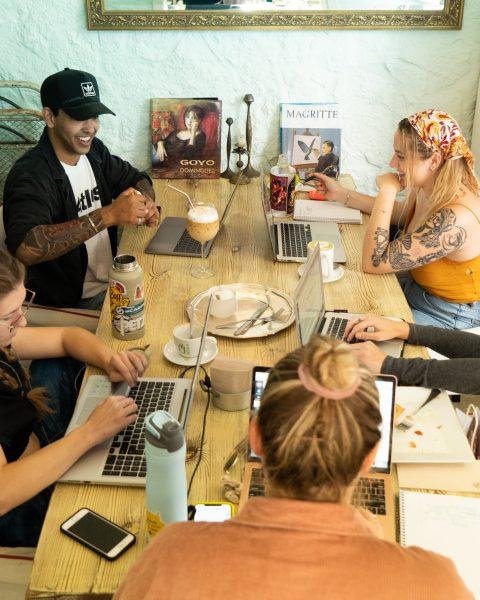
Photo courtesy of Zach Clenaghan.
If you don’t have access to a separate room, Clenaghan advises taking a walk around the block to mimic a commute and “create that physical and mental change.” Fisher recommends hanging something on the door of the room you are studying in to indicate to other members of your household that you are “in focus mode.”
After the first week of online classes, Marthaler realized she wasn’t feeling as productive as she wanted to be. With her classes now two hours earlier – because she’s on the West Coast – and spending all day studying in her room, Marthaler wanted some way to separate her work and leisure spaces. Without a desk, Marthaler got creative. “I made my dresser into a makeshift desk so I had my own space to do class and homework, which helped me be a lot more productive.”

Fisher also emphasizes the importance of prioritizing assignment deadlines. “Go by what’s due first,” he advises.
D’Amico, who started bullet journaling two years ago, finds it to be the most effective way for him to take stock of his priority items, describing the list created in his bullet journal as relieving “the mental stress of having to remember everything coming down the pipeline constantly.”
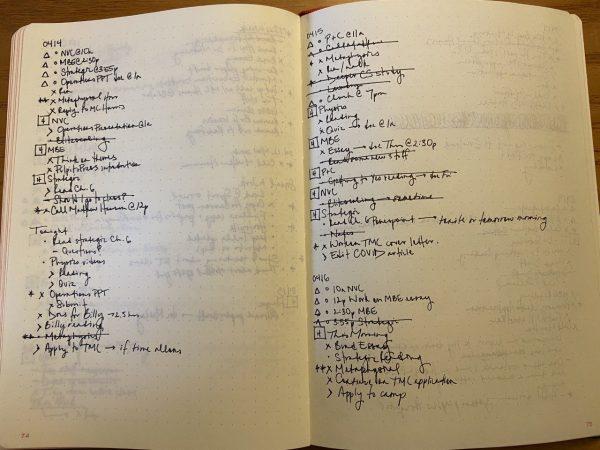
But not all your time needs to fall into that neat list.
Clenaghan and Fisher both say that no individual can stay completely focused for all hours in the day. It is important and valuable to have unproductive time.
Smith has learned to channel those moments in the day where he’s getting distracted from school work into a mechanism to help reset and refocus. This has meant taking on new art projects or going for a run. “I’ve been trying to keep busy in a way that is actively benefitting me,” he says, adding that switching gears, intentionally, makes it “easier to get back into work.”
While students and faculty members certainly didn’t plan their spring semester courses with a digital format in mind, Clenaghan notes the value online learning could provide in the future job market. He anticipates that the number of digital nomads, “somebody who travels the world while working online,” will increase as employers realize the costs saved by not paying for an office space. “Being an online student now is getting your feet wet in that world.”
While cultivating the self-discipline required in remote learning can be challenging, it can also be a time of “exploration.”
“That’s where it becomes really powerful, is that you can shape your day exactly how it best suits your natural rhythms,” says Clenaghan, whether that be deviating from the traditional 9-to-5 workday or taking a sunset stroll. “You can design your day exactly how you want it to look.”
For more tips on productivity, you can listen to Fisher’s “Beyond the To-Do List” podcast or visit Clenaghan’s blog post on how to stay productive while studying online.


